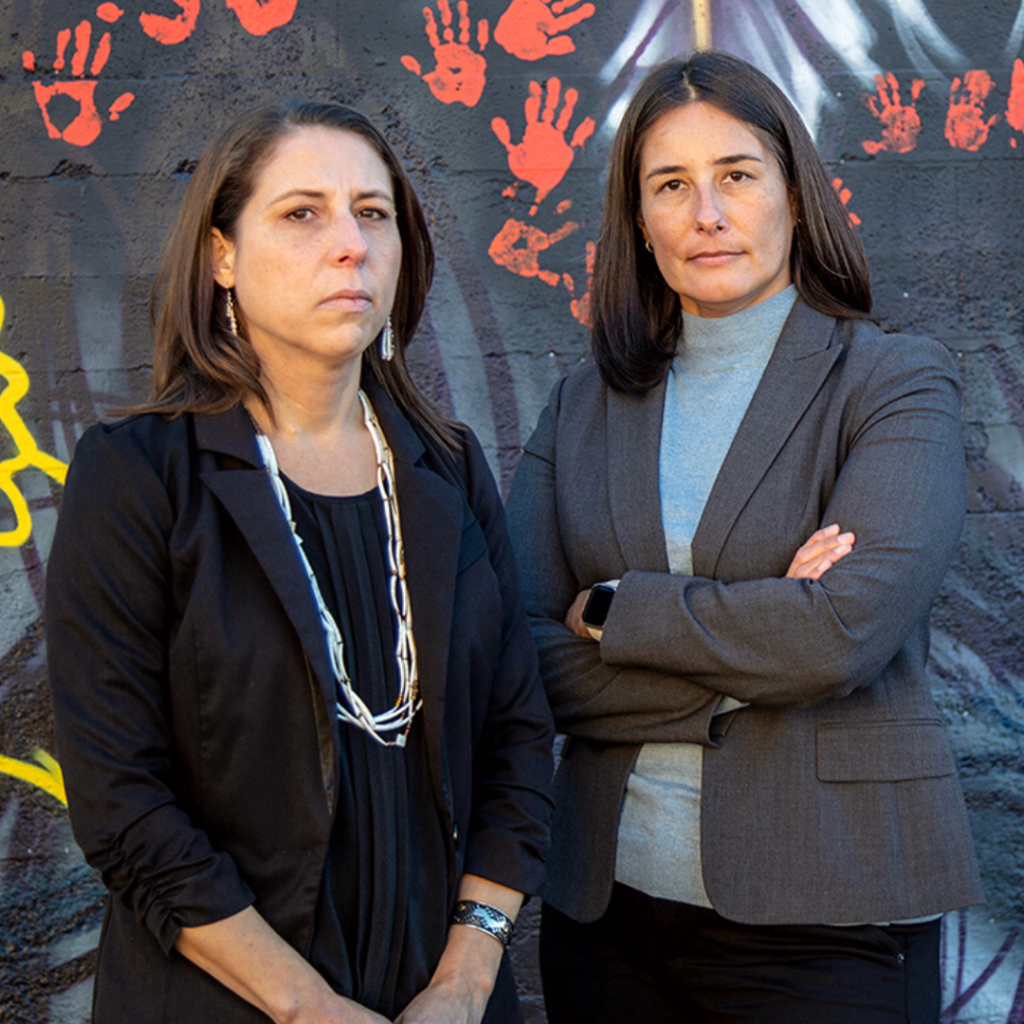Advancing tribal sovereignty by unifying tribes to protect their children and families
Overview
Like many Indian children between 1879 and the 1960s, Blair Kreuzer’s grandmother was removed from her home and family and placed in a boarding school as a governmental effort to assimilate tribes and tribal children into white American culture. The impact of this attack on tribal families, culture, and sovereignty continues to ripple for many generations — through the loss of identity and language and the ongoing trauma experienced by the separated families.
Tribes know what is best for our children, and our children must remain connected to their cultures and communities.
— Blair Kreuzer
Inspired to reclaim her identity and prevent other families and tribes from experiencing this trauma, Kreuzer joined efforts with Delia Sharpe to support a newly established organization — the California Tribal Families Coalition (CTFC). Founded by tribal leaders in 2017, CTFC advocates for policy and statutory change on behalf of tribes, provides legal counsel for tribes in child welfare cases, and boosts the capacity of tribes to deliver their own child welfare and behavioral health services; all in the mission of protecting and promoting the health, safety, and welfare of tribal children and families. Since its inception, CTFC has successfully passed legislation, changed regulations, secured funding for tribes, and reduced barriers to protect Indian children and families and advance tribal sovereignty.
Through the Coalition the best and brightest minds are working together to ensure tribes can shape policies that directly impact them, it has been an honor to help translate the vision of tribal leaders and representatives into novel approaches that improve the lives of their children and families.
— Delia Sharpe
Challenge
- For about 150 years, Indian children were separated from their families and sent to boarding schools. This led to abuse, cultural genocide, and a death toll of tens of thousands of children.[1] As boarding schools phased out in the 1960s, the government continued these harmful policies through the Indian Adoption Project in which Indian children were placed into non-Native families through coerced adoption.
- In 1978, the Indian Child Welfare Act (ICWA) was enacted to remedy these harmful practices, prevent the separation of families, and, if removal is necessary, prioritize the placement of Indian children with members of their community. Despite these protections, Indian children continue to be overrepresented in California’s child welfare system, and more than half of the Indian children in foster care end up in non-ICWA-preferred placements.[2]
- In 2017, California’s first ICWA Compliance Task Force, which was co-chaired by seven tribal leaders, found that insufficient services and severe underfunding prevent tribal participation and undermine the effectiveness of ICWA. This Task Force led to the creation of CTFC, and its report findings continue to guide CTFC’s operations.
Innovation
- CTFC unifies tribes to have a stronger voice on policy matters such as stronger ICWA compliance, protection of tribal sovereignty, and the well-being of tribal children and families.
- CTFC supports tribal efforts to provide child welfare and behavioral health services directly to tribal youth and families. Tribes contract with CTFC to build capacity to access and optimize funding for tribal social services programs.
- Recognizing the need for more robust ICWA trainings for the child welfare workforce, Kreuzer worked with the California Department of Social Services (CDSS) and other partners to develop the ICWA Specialist Certification Program. This six-week, 40-hour program pairs instruction, experiential learning, and practice sessions to give trainees the specialized skills and deep knowledge needed to fully implement ICWA.
Impact
- CTFC helped amend over 50 sections of the California Welfare and Institutions Code and secured millions of dollars in state funding to support tribal family welfare.
- Nearly half of California’s 109 federally recognized tribes have joined CTFC, authorizing the organization to engage in advocacy regarding child welfare on their behalf. In an unusual collaboration, CTFC worked with tribal leaders and other organizations to successfully secure all 109 California tribes as signatories to a tribal amicus brief for a Supreme Court case.
- As a result of CTFC’s advocacy, Governor Newsom signed Assembly Bill 873 in 2021, and in 2022 two budget authorizations, paving the way for federal and state child welfare funding to be allocated to support tribal child welfare systems, addressing the top recommendation of the 2017 Task Force Report. CTFC has championed several other successful pieces of legislation that improve ICWA implementation and outcomes in California, including AB 3176 (2018) and AB 686 (2019).
Opportunity
- In 2023, CTFC anticipates focusing on attacks to ICWA, most notably the 2019 Brackeen v Haaland case which challenges ICWA as unconstitutional. The US Supreme Court heard arguments about the case in November 2022 and CTFC has assisted the intervening tribes leading the defense effort.
- If ICWA is overturned, numerous laws that rest on a precedent of tribal sovereignty could be in jeopardy. CTFC is preparing to mobilize to protect tribal rights and children by launching an institute focused on five actions: develop model legislation, prepare litigation, produce scholarship, disseminate communications, and provide funding.
- In the fall of 2022, CTFC announced Sharpe’s departure from the role of Executive Director, allowing Kreuzer and Michelle Castagne to step in as co-executive directors, and for CTFC to be fully tribally-led. Sharpe continues to support in a volunteer capacity.
Primary Regions Served
The written profile and video reflect the work of the leader(s) the year they received a Leadership Award. Please contact the leader(s) for current information.
